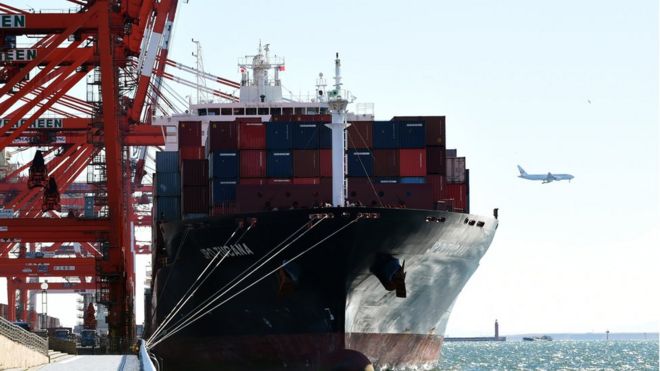This is a recording of a revision webinar on Market Structures - designed for Year 13 Economics students. Market structure is dynamic – examiners love industries where there is change especially the arrival of challenger firms that threaten the share/profits of established businesses.
I don't think anybody has any idea what the economic impact of Brexit will be. Steve Eisman
Total Pageviews
Thursday, 29 March 2018
More MCQ's - Business Economics
Here is a recording of a revision webinar looking at ten questions covering business economics in competitive and imperfectly competitive markets.
Tuesday, 27 March 2018
Multiple Choice Questions - Aggregate Demand and Supply
Here is a MCQ Revision Blast session covering ten questions on aggregate demand and supply. Great to test your understanding as you revise key Year 1 macro concepts.
Pause the video as you attempt each of the 10 revision questions and press play to discover the answer and accompanying explanation.
Tuesday, 20 March 2018
The UK and free trade post BREXIT
Click here to read an article which discusses how consumers could see prices fall by up to 1.2% if Britain were to abolish all tariffs once it has left the European Union.
Labels:
brexit,
common external tariff,
tariff barriers
Monday, 19 March 2018
Monetary Policy, Exchange rates and Black Wednesday
A full length film discussing Black Wednesday.
Labels:
black wednesday,
exchange rates,
Monetary policy
Thursday, 15 March 2018
Wage determination - The seven places where women earn more than men in US
A new analysis by Stateline, a publication of the Pew Charitable Trusts, found only seven communities across the country where women make significantly more than men.
Monday, 12 March 2018
Supply & Demand - Changing tatstes in coffee market
Consumer demand for premium coffee has grown strongly in recent years. How is Nescafe responding to changing market preferences for soluble coffee granules?
Labels:
coffee,
coffee shops,
Demand,
price non-price strategies
Friday, 9 March 2018
International Trade is alive and kicking - Asia-Pacific trade deal signed by 11 nations
Click here to access a piece on the new trade bloc, renamed (in the absence of the US) the Comprehensive and Progressive Agreement for Trans-Pacific Partnership (CPTPP).
Interesting discussion on who will be the winners and losers from this deal, always a good way to evaluate discussions on this topic.
Interesting discussion on who will be the winners and losers from this deal, always a good way to evaluate discussions on this topic.
Labels:
free trade,
international trade,
protectionism,
TPP
Thursday, 8 March 2018
Lego - Supply issues
It has been an interesting week for Lego. For the first time i 13 years, they have seen a fall in sales for their bricks. Click here to read BBC article.
Useful when discussing supply & demand.
Useful when discussing supply & demand.
Labels:
elasticity of supply,
lego,
Supply,
supply & demand
Monday, 5 March 2018
Mark Carney on the future of money
Excellent speech for all students of Economics. Mark Carney, the governor of the Bank of England discusses money and its future. He brings many aspects on macroeconomics into the debate. A must watch guys.....
Labels:
bank of england,
functions of money,
Mark Carney,
money
Balance of Trade - The patter for the UK
This short revision video looks at the commodity and geographical composition of UK trade in goods and services. The UK is the 9th largest export economy in the world and the 11th most complex economy according to the Economic Complexity Index. It has 2.7% of world trade.
Click here to access the economic complexity index for the UK. An excellent resource which highlights what and where we trade.
Click here to access the economic complexity index for the UK. An excellent resource which highlights what and where we trade.
Sunday, 4 March 2018
International Trade & Protectionism - A new Trade War?
I could have picked one of many articles on the latest to come out of the White House. I hope you guys have been following what's going on. Click here to access a BBC piece on the implications of tariffs for both the USA and its trading partners.
Subscribe to:
Comments (Atom)

